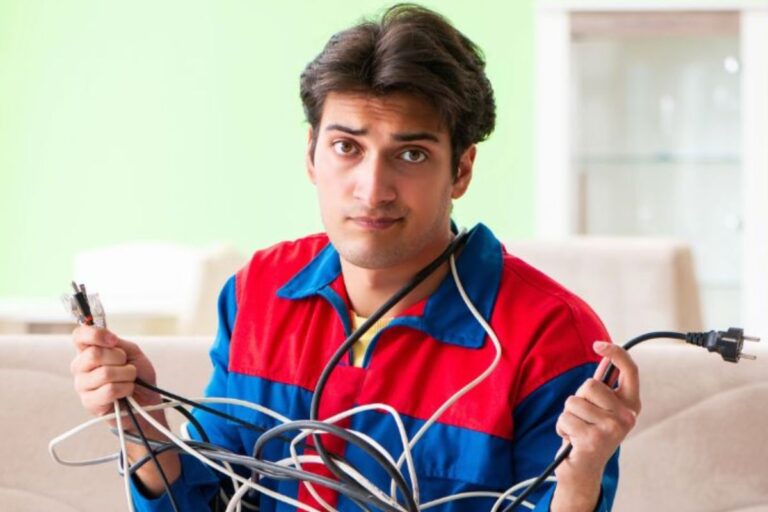15 Normal Daily Habits That Secretly Drain Your Energy After 40
As you get past 40, you might notice your energy doesn’t bounce back like it used to. Everyday habits that seem harmless can actually chip away at your stamina, leaving you feeling more tired than necessary.
Understanding which common routines quietly drain your energy can help you make small changes that make a big difference. Paying attention to these habits can improve how you feel day to day without major overhauls.
Constantly checking your phone

You probably reach for your phone more times than you realize each day. Scrolling through social media or checking notifications can feel harmless, but it actually takes a toll on your energy.
All that constant stimulation makes your brain work harder than it needs to. It can leave you feeling mentally drained and less focused on what’s important.
When you’re over 40, your energy levels might not bounce back as quickly. This means the small drain from your phone habits adds up more than it did before.
Try to set specific times for checking your phone instead of doing it all day. Giving yourself breaks away from screens can help you feel more refreshed.
Even turning off non-essential notifications can make a big difference. It reduces the urge to check your device constantly and keeps your mind calmer.
Skipping meals or poor diet

When you skip meals, your energy levels take a hit. Without regular fuel, your body struggles to keep up, leaving you feeling tired and unfocused.
A poor diet can also sap your energy. Eating too much processed food or sugar causes spikes and crashes that wear you down throughout the day.
Eating balanced meals with protein, healthy fats, and complex carbs helps keep your energy steady. Also, staying hydrated plays a big role in how energized you feel.
When you’re over 40, your metabolism may slow down slightly, so fueling your body consistently becomes even more important. Avoiding long gaps between meals can help you avoid energy slumps.
Try to listen to your hunger cues and eat small, nutritious meals regularly. Doing this makes it easier to maintain your energy without feeling drained.
Living in cluttered spaces

When your surroundings are cluttered, it can take a toll on your focus and energy. You might not realize it, but constantly navigating through mess makes tasks feel more tiring than they should.
Clutter pulls your attention in different directions, which slows you down and drains your mental energy. It’s harder to find what you need, so you waste time and feel more stressed.
Keeping your space tidy doesn’t have to be a big chore. Spending just 10 to 15 minutes a day organizing can make a noticeable difference in how you feel.
A cleaner environment helps your mind relax and lets you concentrate better. This is especially important after 40, when your energy levels naturally start to dip.
Simple habits like putting things back right away or storing items in baskets can keep clutter from piling up. Your living space can become a place where your energy stays steady, not one that wears you down.
Not drinking enough water

If you’re not drinking enough water, you might feel more tired than usual. Even mild dehydration can make your energy take a hit, especially after 40 when your body starts needing more care.
Water helps your organs work smoothly and keeps you alert. Skipping out on it means your body has to work harder, which can drain your energy faster.
Carrying a water bottle with you is a simple way to remind yourself to drink more. Try sipping water regularly throughout the day instead of waiting until you’re thirsty.
Sometimes, people mix up hunger and thirst, so drinking water can also help control unnecessary snacking that leaves you feeling sluggish.
Making water your go-to drink instead of sugary or caffeinated ones can improve how you feel overall. Hydration is one of the easiest habits to fix but often gets overlooked.
Overcommitting to too many tasks

Taking on more than you can handle might seem like a way to stay productive, but it quickly drains your energy. When you say yes to everything, your schedule fills up with little room for rest.
You might feel obligated to help others or prove yourself, but overcommitting leaves you mentally and physically exhausted. It also makes it hard to focus well on any one task.
Learning to say no is important. By setting boundaries, you protect your energy and give yourself the chance to recharge.
If you keep piling on responsibilities, you risk burnout. Giving yourself downtime isn’t lazy—it’s necessary to maintain your energy levels as you age.
Watching overly emotional TV shows

Watching TV can seem like a good way to relax after a long day. But tuning into overly emotional shows might actually drain your energy more than you realize.
These shows often stir up strong feelings, making your brain work harder to process everything. You might find yourself feeling mentally tired or stressed even after just a short binge.
When you watch, you sometimes imagine yourself in the characters’ situations. This can be exhausting because your mind is trying to handle their emotions along with your own.
If you notice you feel worn out or anxious after watching certain shows, it might be a sign to choose lighter, less intense content. Your energy levels will thank you for it.
Multitasking excessively

When you try to juggle too many tasks at once, your brain gets overloaded. This can actually slow you down and make you feel more tired than if you focused on one thing at a time.
Switching back and forth between activities takes extra mental energy. After 40, your ability to quickly bounce between tasks may not be as sharp, so multitasking can drain your energy faster.
Instead of trying to do it all at once, try prioritizing what really needs your attention. Give yourself permission to focus on a single task before moving on. This can help you stay energized and get more done without the mental fatigue.
Multitasking may seem efficient, but it often leads to mistakes and more stress. Cutting back can make your day feel less chaotic, freeing up energy for the things you enjoy.
Ignoring sleep schedules

When you don’t stick to a regular sleep schedule, your body’s internal clock gets thrown off. This can make it harder for you to fall asleep and wake up feeling refreshed. Over time, inconsistent sleep patterns quietly zap your energy.
Sleep quality matters just as much as sleep quantity. Drinking caffeine late in the day or staying up too late can disrupt deep sleep. Without enough deep rest, you might find yourself feeling tired even after a full night in bed.
By setting and sticking to a consistent bedtime and wake-up time, you help your body recover better. This makes a big difference in how energized you feel during the day. Your muscles relax, your mind clears, and you can focus more easily.
Sitting for long periods without breaks

If you’re sitting for hours at a time, your energy can take a real hit. Staying in one spot slows down your blood flow, making you feel sluggish and tired.
Even short breaks can help. Standing up, stretching, or walking around for a few minutes gets your circulation going again and refreshes your mind.
It’s not just about feeling less tired. Moving regularly can boost your mood by releasing endorphins, which can make your day feel a little easier.
Try to set a timer if you work at a desk. Every 30 to 60 minutes, take a quick pause to get moving. It doesn’t have to be long—just enough to break up that sitting spell.
If you’re on calls or meetings, consider walking while you talk. This small change can fight fatigue without interrupting your workflow.
Letting negative self-talk take over

Negative self-talk can quietly drain your energy without you even noticing. When you constantly criticize yourself or dwell on mistakes, it creates stress that wears you down over time.
This kind of thinking isn’t just a mood killer—it affects your focus and motivation too. You might find yourself feeling stuck or less confident in daily tasks.
The trick is to notice when your inner voice turns harsh. When you catch yourself being overly critical, try to pause and challenge those thoughts.
Switching negative self-talk to something more constructive can free up mental energy. It doesn’t mean ignoring problems, but framing them in a way that helps you grow instead of dragging you down.
Over time, practicing this habit can make your inner dialogue a source of support rather than stress. You’ll feel less drained and more capable of handling what comes your way.
Procrastinating on important tasks

When you put off important tasks, your brain stays in a state of tension. That kind of mental clutter uses up a surprising amount of your energy throughout the day. Instead of feeling productive, you might end up exhausted without getting much done.
Focusing on big tasks can feel overwhelming. Breaking them into smaller, manageable pieces helps make starting easier. Even small progress can boost your motivation and reduce the energy drain caused by avoidance.
Delaying important work often leads to last-minute rushes. These stressful bursts can sap your focus and leave you feeling worn out. Tackling tasks early helps keep your energy levels steadier and your mind clearer.
Overconsumption of caffeine

You might think caffeine is your best friend when energy dips hit, but too much can actually backfire. Drinking coffee or energy drinks late in the day can mess with your sleep quality and duration.
Even if you don’t feel wired, caffeine consumed six hours before bedtime can still reduce how long you sleep. Poor sleep means less energy the next day, creating a frustrating cycle.
Your body can only handle so much caffeine at once. Experts suggest keeping your daily intake under 400 mg—about four cups of coffee. Going over this can lead to jitteriness, anxiety, and digestive problems.
If you depend on caffeine to get through the afternoon slump, try cutting back gradually. Switching to earlier caffeine consumption or replacing some with water or herbal tea might help you avoid that crash.

Spending too much time scrolling through social media can quietly drain your energy. When you’re constantly switching between apps or feeds, your brain gets overloaded with information. This mental fatigue can leave you feeling tired without you even realizing why.
You might start your day with social media and lose track of time. That habit can make it harder to focus on more important tasks. Plus, scrolling often disrupts your sleep, especially if it happens right before bed.
Social media is designed to keep you hooked with quick hits of dopamine. This can make it tough to stop and create a cycle where you’re always craving more. When you scroll without a break, your energy and mood can both take a hit.
Cutting back on social media time or setting limits during the day can help you feel less drained. Try to notice when you reach for your phone out of boredom or habit instead of genuine interest. Small changes can make a noticeable difference in your energy levels.
Mindlessly snacking out of boredom

When you snack just because you’re bored, you’re likely eating without real hunger. This can add up to extra calories and leave you feeling sluggish. After 40, your metabolism slows down, so unnecessary snacking can affect your energy more.
Often, boredom snacking comes with low-quality foods like chips or sweets. These might give a quick boost but often lead to energy crashes later. Choosing healthier options or avoiding snacks altogether can help keep your energy steady.
Sometimes, you snack just to fill time or distract yourself. Finding another activity—like going for a short walk or doing a quick hobby—can reduce the urge to eat when you’re not actually hungry. Paying attention to why you snack helps you make better choices.
Not setting daily priorities

When you don’t set clear priorities, your energy can get eaten up by less important tasks. It’s easy to feel busy but not productive, which leaves you drained by the end of the day.
Without a plan, your focus scatters. You might jump between tasks, which can lead to mental fatigue faster than when you concentrate on one thing at a time.
By picking a few key priorities each day, you give your brain less to juggle. This helps reduce stress and keeps your energy levels steadier.
Try writing down your top three tasks every morning. Sticking to those helps you avoid wasting energy on things that don’t really matter.
Setting priorities also means you’re more likely to say no to distractions. This saves your energy for what’s important to you.







